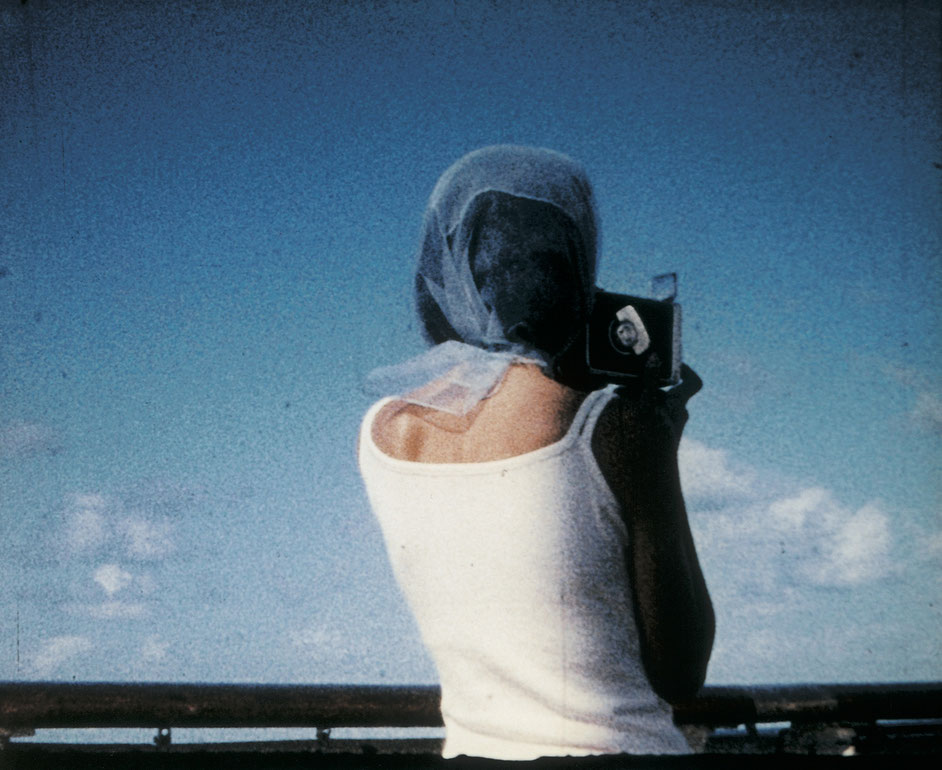Passages
A woman stands alone at the railing of a passenger liner and gazes into the blue. She will remember for us an arrival in New York, the walk of a young couple through China-town, the house boats in Shanghai and the excited children who gather round the visitor with the obscure picture machine. Beneath the pictures the sounds of distant lands can be heard and, in parallel, a montage of various memories and people unfolds. People who at some time either left or arrived in Vienna involuntarily. (...)
Lisl Ponger creates an imaginary map of the twentieth century on which the stories of emigration are engraved like well-worn tracks of occidental memory. The pictures, made by observant tourists, are revealed, in their tensile relationship to the soundtrack, as a post-colonial journey. A journey through exactly those countries which long ago have been shrunk together in space and time. Finally the wonderful neon signs of the "Hotel Edison" and "Radio City" remind one of the origins of this form of appropriation of the world, of the time of great expeditions, of Benjamin´s shop-windows and passages, and of the time when technical apparatus and means of transportation fundamentally altered the perceptions of modern man. (Christa Blümlinger)
In a sensitive gestus Lisl Ponger makes clear that, where images are concerned, neither hermetic memory nor immutable innocence exist and that found footage art requires no artificial manipulation to make the seam between privacy and hidden political agendas visible. (Robert Buchschwenter)

